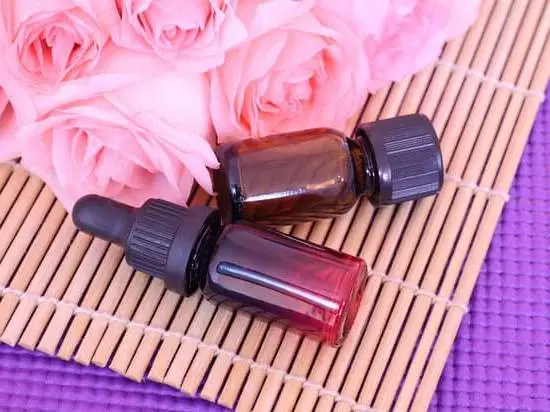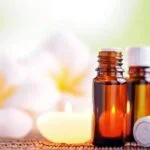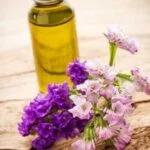Anxiety is a complex and pervasive mental health condition that affects millions of people worldwide. It is characterized by persistent worry, fear, and restlessness that can interfere with daily life. Not only does anxiety take a toll on individuals’ emotional well-being, but it can also negatively impact their physical health and overall quality of life. Finding effective remedies to alleviate anxiety symptoms is crucial for those affected by this condition.
In this article, we will explore the power of aromatherapy as a natural solution for anxiety relief. Aromatherapy taps into the therapeutic benefits of essential oils to promote relaxation, calmness, and emotional well-being. By understanding the origins of aromatherapy, exploring scientific evidence supporting its effectiveness, and identifying specific essential oils that aid in anxiety reduction, readers will gain valuable insights into how this complementary therapy can be integrated into their own anxiety management routines.
Anxiety may manifest through various symptoms such as racing thoughts, increased heart rate, sweating, and a sense of impending doom or panic. These symptoms can have profound effects on mental health, leading to heightened stress levels and decreased overall happiness. It is essential to address these symptoms effectively in order to enhance one’s well-being and regain control over their lives.
With the rising interest in holistic approaches to wellness, aromatherapy has gained popularity as an alternative anxiety relief option. It harnesses the power of aromatic plant compounds found in essential oils to stimulate certain brain areas associated with emotions and mood regulation. By incorporating these natural scents into daily routines or specific relaxation practices such as inhalation or topical application, individuals may experience a reduction in anxiety symptoms.
In the following sections of this article, we will delve deeper into the concept of aromatherapy as a natural anxiety relief option. From examining scientific evidence supporting its effectiveness to discussing top essential oils for anxiety relief and exploring different methods of application – readers will discover how they can harness the potential benefits of aromatherapy in their own journey towards managing anxiety.
By embracing the power of aromatherapy, individuals may find solace and relief from the burdensome weight of anxiety in their lives.
Understanding aromatherapy as a natural anxiety relief option
Aromatherapy, which is the use of essential oils to promote physical and psychological well-being, has been utilized for centuries as a natural remedy for various ailments. In recent years, it has gained attention as a potential therapy for anxiety relief. This section will provide an overview of aromatherapy as a natural anxiety relief option.
Aromatherapy originated in ancient civilizations such as Egypt, Greece, and China, where essential oils were used for their healing properties. Essential oils are highly concentrated plant extracts that capture the aromatic compounds and therapeutic benefits of plants. Each oil possesses unique properties that can have different effects on our emotions and overall well-being.
The main mechanism behind aromatherapy’s impact on anxiety lies in its stimulation of the limbic system in our brain. The limbic system plays a crucial role in regulating emotions, memory, and stress response. When we inhale the aroma of essential oils, the scent molecules travel through our nasal passages and stimulate the limbic system, triggering emotional responses and promoting relaxation.
Scientific research supports the effectiveness of aromatherapy as an anxiety relief option. Multiple studies have shown that certain essential oils have significant anxiolytic (anti-anxiety) effects. For example, lavender oil has been found to reduce anxiety levels and improve sleep quality in individuals with generalized anxiety disorder. Chamomile oil has also demonstrated soothing effects and can help alleviate symptoms of stress and anxiety.
Additionally, it is important to note that while personal anecdotes suggest positive outcomes with aromatherapy for anxiety relief, placebo effects may play a role in these experiences. Therefore, controlled studies are necessary to validate the true efficacy of essential oils for anxiety management.
Scientific evidence supporting the effectiveness of aromatherapy for anxiety
When it comes to managing anxiety, many people seek natural and holistic remedies as an alternative to pharmaceutical options. Aromatherapy, with its use of essential oils derived from plants, has gained recognition as a promising option for anxiety relief. But does it really work?
Numerous studies have been conducted to investigate the potential benefits of aromatherapy for anxiety. One study published in the Journal of Clinical Psychology in 2018 found that participants who were exposed to lavender essential oil experienced significantly reduced anxiety levels compared to those who were not exposed to the scent.
Another study published in the International Journal of Nursing Practice in 2020 showed that participants who received aromatherapy massage with a blend of essential oils reported decreased anxiety levels and improved mood.
The therapeutic benefits of specific essential oils have also been documented. For example, lavender oil has been shown to have calming properties and can help improve sleep quality, which is often disrupted by anxiety. Chamomile oil is known for its soothing effects and ability to reduce stress. Bergamot oil has mood uplifting properties and can help reduce feelings of anxiety and depression. Ylang-ylang oil, with its relaxing scent, promotes relaxation and eases nervous tension.
Although these studies provide promising evidence for the effectiveness of aromatherapy in reducing anxiety symptoms, it is important to note the role of placebo effect. Some individuals may experience a placebo response, where their belief or expectation that aromatherapy will help reduce their anxiety leads to positive outcomes. To ensure accurate results, controlled studies that compare aromatherapy with a placebo or other treatments are necessary.
Overall, scientific evidence suggests that aromatherapy can be an effective tool for managing anxiety symptoms. However, it is important to remember that everyone’s experience may vary and what works for one person may not work for another. It is always advisable to consult with a healthcare professional before incorporating aromatherapy or any new treatment into your anxiety management routine.
Top essential oils for anxiety relief and their benefits
Aromatherapy is a natural and effective way to alleviate anxiety symptoms. One of the key components of aromatherapy is essential oils, which are derived from plants and possess various therapeutic benefits. Here are some of the top essential oils for anxiety relief and how they can benefit individuals struggling with anxiety:
- Lavender: Lavender is widely known for its calming properties. It has been proven to reduce anxiety levels, promote better sleep, and improve overall mood. Inhaling lavender oil can help soothe nervousness and provide a sense of relaxation.
- Chamomile: Chamomile essential oil has soothing effects on the mind and body, making it an excellent option for reducing stress and anxiety. It can induce a state of calmness, ease tension, and promote better sleep quality.
- Bergamot: Bergamot essential oil has a citrusy scent that uplifts the mood and reduces feelings of anxiety. It is renowned for its ability to enhance relaxation while also providing an energy boost. Bergamot oil can be particularly useful for individuals experiencing low moods alongside their anxiety.
- Ylang-ylang: Ylang-ylang essential oil is known for its sedative properties, promoting deep relaxation and easing nervous tension. It helps balance emotions, reduce heart rate, and induce a sense of calmness.
These essential oils can be used in various ways to achieve anxiety relief:
- Inhalation: Diffusers, inhalers, or steam inhalation methods allow individuals to inhale the aroma of these essential oils directly into their respiratory system. Inhaling the scent triggers positive emotional responses by stimulating the limbic system in our brain.
- Topical application: Diluted essential oils can be applied to specific areas of the body such as temples, wrists, or chest. Mixing them with carrier oils like coconut or jojoba oil ensures safe use on the skin.
- Room sprays and aromatic baths: Creating a calming environment by diffusing essential oils in the air or adding them to bathwater can provide a soothing experience for anxiety relief.
It is important to note that while essential oils can be an effective tool for anxiety management, they should not replace professional help. Seeking guidance from healthcare professionals is crucial, especially if anxiety symptoms persist or worsen. Aromatherapy can be used as a complementary approach alongside other anxiety management techniques to enhance relaxation and overall well-being.
How to use aromatherapy for anxiety relief
Aromatherapy is a versatile and accessible tool for anxiety relief. There are several effective methods to incorporate aromatherapy into your daily routine, allowing you to experience the benefits of essential oils and their calming effects. When it comes to using aromatherapy for anxiety relief, inhalation, topical application, room sprays, and aromatic baths are some of the most popular approaches.
Inhalation: One of the simplest ways to use aromatherapy is through inhalation. This method allows you to directly breathe in the scent of essential oils, which can have a direct impact on your emotions and mental state. Some common inhalation methods include:
- Diffusers: These devices are specially designed to disperse essential oils into the air. Adding a few drops of your chosen oil into a diffuser can create a calming atmosphere in your living space or work area.
- Inhalers: Portable inhalers filled with essential oils can be carried with you wherever you go. Simply inhale deeply from the inhaler whenever you feel anxious or overwhelmed.
- Steam Inhalation: Add a few drops of essential oil to a bowl of hot water and inhale the steam by placing a towel over your head and leaning over the bowl. This method is particularly effective for respiratory issues related to anxiety.
Topical application: Another way to use aromatherapy for anxiety relief is through topical application. Essential oils can be diluted and applied directly to the skin, providing both physical and emotional benefits. However, it’s crucial to dilute essential oils properly before applying them topically, as they are highly concentrated substances. Here are some guidelines:
- Dilution ratios: Mix 1-3 drops of essential oil with 1 teaspoon (5 mL) carrier oil such as coconut oil or sweet almond oil. This helps prevent skin irritation or sensitivity.
- Safe methods for skin application: Apply the diluted mixture to pulse points, such as wrists, temples, or behind the ears. You can also use the diluted oil for massage by gently rubbing it onto tense areas like the neck and shoulders.
Room sprays and aromatic baths: Creating a calming environment is another way to incorporate aromatherapy into anxiety relief. Room sprays and aromatic baths can help promote relaxation and reduce stress. Here’s how you can use them:
- Room sprays: Fill a spray bottle with water and add 5-10 drops of your chosen essential oil. Shake well before each use and spray it in the air or on linens for an instant mood boost.
- Aromatic baths: Add 5-10 drops of essential oil to a warm bath along with Epsom salts or a carrier oil to disperse the oils throughout the water. Relax in the bath for at least fifteen minutes to experience therapeutic benefits.
By incorporating these various methods of aromatherapy into your daily routine, you can create a personalized self-care ritual that helps alleviate anxiety symptoms and promotes overall well-being. Experiment with different essential oils and find what works best for you in managing your anxiety levels effectively.
Combining aromatherapy with other anxiety management techniques
Aromatherapy can be a powerful tool for managing anxiety, but its effects can be enhanced when combined with other anxiety management techniques. By incorporating breathing exercises and meditation into an aromatherapy routine, individuals can experience even greater relaxation and stress reduction. These practices help to calm the mind and bring focus to the present moment, allowing individuals to fully immerse themselves in the therapeutic benefits of essential oils.
Another technique that pairs well with aromatherapy is yoga or physical activity. Engaging in regular exercise has been shown to reduce symptoms of anxiety by releasing endorphins and promoting a sense of well-being. When combined with the relaxing scents of essential oils, yoga or physical activity becomes a powerful combination for reducing stress and improving mental health.
Additionally, cognitive-behavioral therapy (CBT) can be partnered with aromatherapy to enhance its effectiveness for managing anxiety. CBT is a form of therapy that focuses on identifying and changing negative thought patterns and behaviors associated with anxiety. By incorporating aromatherapy into CBT sessions or daily routines, individuals can create positive associations between certain scents and emotions, further reinforcing the calming effects of essential oils.
It’s important to note that while combining these techniques may provide additional benefits, each person’s journey in managing their anxiety will be unique. What works well for one individual may not work as effectively for another. Therefore, it is best to experiment with different combinations of techniques and find what resonates most with personal needs and preferences.
Precautions and considerations when using aromatherapy for anxiety
Allergies and sensitivities to specific oils
When using aromatherapy for anxiety relief, it is important to consider any allergies or sensitivities to specific essential oils. While essential oils are generally considered safe and well-tolerated by most people, some individuals may have allergic reactions or sensitivities to certain oils. It is recommended to perform a patch test before applying the oil topically or using it in a diffuser or inhaler.
This involves placing a drop of the diluted essential oil on a small area of skin and monitoring for any adverse reactions such as redness, itching, or irritation. If any discomfort occurs, the use of that particular oil should be discontinued.
Dilution guidelines and recommended testing
Another precaution to take when using aromatherapy for anxiety is proper dilution of essential oils. Most essential oils are highly concentrated and should not be applied directly to the skin without being diluted first.
Diluting an essential oil in a carrier oil such as coconut, jojoba, or almond oil helps reduce the risk of skin irritation. The general rule of thumb is to use a 2-5% dilution ratio for adults, which means adding 12-30 drops of essential oil per ounce of carrier oil.
It’s also important to note that every individual is different and may react differently to various oils. What works well for one person may not work as effectively for another. Therefore, it can be helpful to conduct personal testing by trying different essential oils and observing their effects on anxiety symptoms before settling on a particular blend.
Safety precautions for using essential oils around children and pets
When using aromatherapy for anxiety relief in households with children or pets, additional safety precautions should be taken. Some essential oils can be toxic if ingested or cause sensitivity reactions in young children or animals with more delicate systems.
Therefore, it is crucial to keep essential oils out of reach and never allow children or pets to ingest them. It is also recommended to consult with a healthcare professional or veterinarian before using aromatherapy around children or pets, especially if they have pre-existing health conditions or are taking medications.
In addition, certain essential oils, such as tea tree oil and eucalyptus oil, can be harmful to cats. Cats lack a specific liver enzyme necessary to metabolize these oils effectively, which can lead to toxicity. Therefore, it’s important to avoid using these oils in areas where cats reside or directly on their fur. When using aromatherapy around pets, it is always advisable to observe their behavior for any signs of discomfort or adverse reactions and discontinue use if necessary.
Personal anecdotes and success stories with aromatherapy for anxiety relief
The Power of Personal Anecdotes
Personal anecdotes and success stories play a vital role in showcasing the effectiveness of aromatherapy for anxiety relief. While scientific evidence provides valuable insights into the therapeutic benefits of essential oils, hearing about real-life experiences can be both inspiring and motivating for individuals seeking natural remedies for their anxiety symptoms. These personal accounts give readers a glimpse into how aromatherapy has positively impacted the lives of others, providing hope and encouragement for those who are struggling with anxiety.
Real-Life Experiences Showcasing Effectiveness
Many individuals have shared their personal journeys with aromatherapy and how it has helped alleviate their anxiety symptoms. One such story is that of Sarah, who experienced chronic anxiety and often found it difficult to calm her racing thoughts.
After incorporating lavender essential oil into her daily routine, she noticed a significant improvement in her ability to relax and sleep better at night. The calming properties of lavender helped her unwind after a long day, reducing stress levels and promoting a sense of peace.
Another success story is that of Mark, who had been dealing with social anxiety for years. He started using chamomile essential oil before social events or stressful situations as a way to soothe his nerves. Mark found that the soothing effects of chamomile helped him feel more at ease in social settings, ultimately reducing his overall stress levels and allowing him to engage more comfortably with others.
Motivation for Readers to Explore Aromatherapy
These personal anecdotes serve as motivation for readers to explore aromatherapy as a potential tool for managing their own anxiety symptoms. By sharing their experiences, individuals like Sarah and Mark are offering support and reassurance to those who may be hesitant about trying alternative approaches to anxiety relief. Their stories illustrate that there are natural remedies available that can effectively alleviate symptoms without harsh side effects or dependency on medication.
It is important to note that while aromatherapy may work for some individuals, it may not be the solution for everyone. Each person’s experience with anxiety is unique, and what works for one person may not necessarily work for another. Therefore, it is crucial to approach aromatherapy with an open mind and consult with healthcare professionals if anxiety symptoms persist or worsen.
By embracing the power of personal anecdotes and success stories, individuals can be inspired to explore aromatherapy as a complementary or standalone anxiety management tool. The next section will provide a recap of the benefits and evidence supporting aromatherapy for anxiety relief, giving readers the confidence to try this natural remedy and take control of their mental well-being.
Conclusion
In conclusion, aromatherapy has proven to be a powerful and natural tool for anxiety relief. Through its therapeutic benefits and the impact of scent on the limbic system, essential oils have shown great potential in alleviating anxiety symptoms. Scientific evidence supports the effectiveness of specific oils such as lavender, chamomile, bergamot, and ylang-ylang in reducing anxiety and promoting relaxation.
Using aromatherapy for anxiety relief is simple and versatile. Whether through inhalation, topical application, or creating a calming environment with room sprays and aromatic baths, individuals can easily incorporate aromatherapy into their daily routines. Moreover, combining aromatherapy with other anxiety management techniques such as breathing exercises, meditation, yoga, or cognitive-behavioral therapy can enhance its relaxation effects and overall efficacy.
It is important to note that while aromatherapy can be a valuable tool for managing anxiety, it is not a substitute for professional help. If anxiety symptoms persist or worsen despite using aromatherapy or other self-help methods, it is crucial to seek guidance from a mental health professional. Embracing the power of aromatherapy along with professional support can lead to improved well-being and provide individuals with effective tools to manage their anxiety.
So why not give it a try? Explore the world of essential oils and discover how they can help ease your anxious mind.
Frequently Asked Questions
How does aromatherapy help anxiety and depression?
Aromatherapy is often used as a complementary therapy to help alleviate symptoms of anxiety and depression. The inhalation of certain essential oils has been found to have a positive impact on mood and emotions. When we inhale the aroma of these oils, they stimulate the olfactory system, which then sends signals to the limbic system in our brain.
This response can help reduce anxiety and improve mood by promoting relaxation and calming the nervous system. Oils such as lavender, chamomile, bergamot, and ylang-ylang are commonly used for their soothing and stress-relieving properties, making them beneficial for those experiencing anxiety or depression.
How does aromatherapy help with mental health?
Aromatherapy can have a significant impact on mental health by promoting relaxation, reducing stress levels, improving sleep quality, and enhancing emotional well-being. Inhaling certain essential oils can trigger the release of neurotransmitters such as serotonin and dopamine, which are responsible for regulating mood and emotions. By simply using essential oils through diffusion or topical application, individuals can experience a sense of calmness, improved focus, enhanced concentration, and reduced feelings of agitation or restlessness.
Moreover, specific oils like frankincense and rosemary have been known to promote mental clarity and memory function. Ultimately, aromatherapy offers a natural approach to support mental health with its potential to uplift moods, alleviate symptoms associated with stress or anxiety disorders.
Which aromatherapy oils are good for anxiety?
Several aromatherapy oils are known for their beneficial effects against anxiety. Lavender oil is one of the most popular choices due to its calming properties that help reduce nervous tension while promoting deep relaxation and sleep quality. Bergamot oil is often used as an uplifting scent that can alleviate stress-related symptoms like anxiety and depression by boosting mood-enhancing neurotransmitters in the brain.
Additionally, chamomile oil possesses sedative properties that can aid in reducing anxious thoughts and feelings while inducing a sense of peace and tranquility. Ylang-ylang oil is another option that can help with anxiety as it acts as a natural mood enhancer, reducing tension and promoting a positive mindset. Overall, the most effective oils for anxiety may vary from person to person, and it is important to find the scent that resonates best with your individual needs.

Are you looking for a natural way to improve your health and wellbeing?
If so, aromatherapy may be the answer for you.





